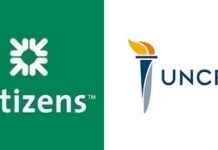
Patricia A. Thompson joined the Providence accounting firm of Piccerelli, Gilstein & Co. in 1978 and was appointed tax partner in 1987. She has extensive experience in complex tax transactions, including multistate tax returns and real estate transactions. She focuses on helping clients with the intricacies of sale transactions to minimize tax consequences, business and financial consulting, and audits with governmental agencies such as the Internal Revenue Service and various state divisions of taxation.
In addition, Thompson has served in several leadership roles for the Rhode Island Society of Certified Public Accountants, as well as for the American Institute of Certified Public Accountants. She is a 1976 graduate of the University of Rhode Island with a bachelor’s degree in accounting. She also earned a master’s degree in taxation from Bryant College in 1986.
PBN: What are some tax incentives for businesses purchasing equipment and making real property improvements?
THOMPSON: Businesses purchasing business assets are eligible to take a depreciation deduction for these assets. The [federal tax overhaul in 2017] increased the bonus depreciation percentage from 50% to 100% for qualified property acquired and placed in service after Sept. 27, 2017, and before Jan. 1, 2023. This is a very generous provision and will significantly reduce a taxpayer’s federal tax liability. The provision was also expanded to include used property if certain conditions relating to the property were met.
Besides the bonus depreciation, the immediate expensing of depreciable business assets – Section 179 – was increased from $500,000 to $1 million, and when the deduction phases out, was increased from $2 million to $2.5 million. Certain real property improvements made to nonresidential real property, including most improvements to a building’s interior, roofs and heating, air conditioning and fire protection systems are eligible.
The immediate expensing of depreciable business assets has a taxable income limitation that doesn’t apply for bonus depreciation. However, Connecticut, Rhode Island and Massachusetts don’t allow bonus depreciation, so additional calculations are required to calculate the depreciation deduction for state purposes. Connecticut doesn’t follow the increased federal immediate expensing provision.
Businesses making real property improvements are waiting for a technical correction bill that would allow certain real property improvements to be eligible for bonus depreciation.
PBN: What are some tips for helping people protect elderly family members from financial fraud?
THOMPSON: The key to protecting elderly family members from financial fraud is protecting the person’s personal information such as his/her Social Security number, credit card number, or bank information. Here are a few ways to protect that information:
- Family members should be made aware of current solicitations and scams attempting to obtain the person’s personal information.
- Remove their names from call lists by signing up for the National Do Not Call Registry at 1-888-382-1222.
- Carefully vet all third parties that may provide services to the family member. These parties could include caregivers, contractors and financial advisers.
- Guard their checks, debt and credit cards, and any documents with personal information by storing them in a location with limited access.
- Be a regular presence in the family member’s life and know the signs of financial abuse.
- Check credit reports regularly.
PBN: What are some ways people can get tax savings when paying for college?
THOMPSON: College tuition can be expensive. Saving for college tuition while your child is young allows the funds set aside to grow for a longer time to have more available for college expenses when you need it. Congress provided for qualified tuition programs, better known as 529 plans, to allow you to set aside in a state-sponsored program for a designated beneficiary and use the funds for certain college expenses.
There is no deduction for the contribution to the 529 plan. Amounts withdrawn from the 529 plan are tax-free up to the child’s qualified higher education expenses. Eligible expenses include tuition, fees, books, supplies and required equipment. Reasonable room and board are also a qualified expense if the student is enrolled at least half time. The amount excluded from income includes the earnings on the account. Distributions over eligible expenses are taxable to the extent they represent earnings and are subject to a 10% penalty.
The amount contributed to the 529 plan is considered a gift to the child. A gift tax return may have to be filed depending on the contribution. As an aside, starting in 2018, tuition includes elementary and secondary public, private, or a religious school up to $10,000.
There are education tax credits available in the year the qualified higher education expenses are paid for a qualified student at an eligible higher education institution.
The American Opportunity Credit is 100% of the first $2,000 of qualified expenses and 25% of the next $2,000 of expenses for a maximum of $2,500. This credit is only available for the first four years of higher education. The student must be enrolled at least half time in a degree program for at least one academic period.
The Lifetime Learning Credit applies for 20% of up to $10,000 of qualifying expenses or a maximum of $2,000. This credit is per tax return and not per student. There is no limit on the number of years this credit can be taken, and the student can be part time.
Qualified expenses for both these credits include required tuition, fees and course materials. There are income limitations on the tax credits but not on the ability to use a 529 plan.
PBN: Are the benefits to businesses from federal tax reform under the Trump administration generally subsiding or are they lasting?
THOMPSON: The goal of the [federal tax overhaul in 2017], according to the House and Senate conference committee, was to improve the economy by creating more jobs, increasing workers’ paychecks and making the tax code simpler and fairer to all U.S. taxpayers.
The corporate tax rate was reduced to 21% to be more competitive when transacting business internationally and to incentivize U.S. businesses to keep profits in the United States.
A few of the [legislation’s] provisions are permanent, but there is no such thing as a permanent provision. Congress can change the provisions as leadership changes or as concerns arise over a growing budget deficit. Most provisions are for 10 years, but even those can be changed with a change in leadership.
Making frequent changes to the tax laws disrupts businesses. Taxpayers like certainty when making business decisions.
PBN: What are some of the more common issues businesses encountered in this year’s tax season?
THOMPSON: Most of the [federal tax overhaul in 2017] changes were effective for taxable years beginning in 2018. Determining how each provision applied to a particular business was an issue. Some provisions depended on how the business was conducted. Special rules applied to pass-through entities to include partnerships, S corporations, trusts and self-employed individuals. Other provisions applied to all business entity types to include pass-through entities and C corporations. Some provisions depended on the average annual gross receipts to the business.
The top three tax issues, excluding depreciation, that businesses were concerned with were:
- The qualified business income deduction available to owners of pass-through entities equal to 20% of their qualified business income.
- Business interest was limited when a business’s average annual gross receipts exceeded $25 million for the prior three years.
- Small businesses with average annual gross receipts of $25 million or less over the prior three years were eligible to change how they reported income.
Scott Blake is a PBN staff writer. Email him at Blake@PBN.com.











